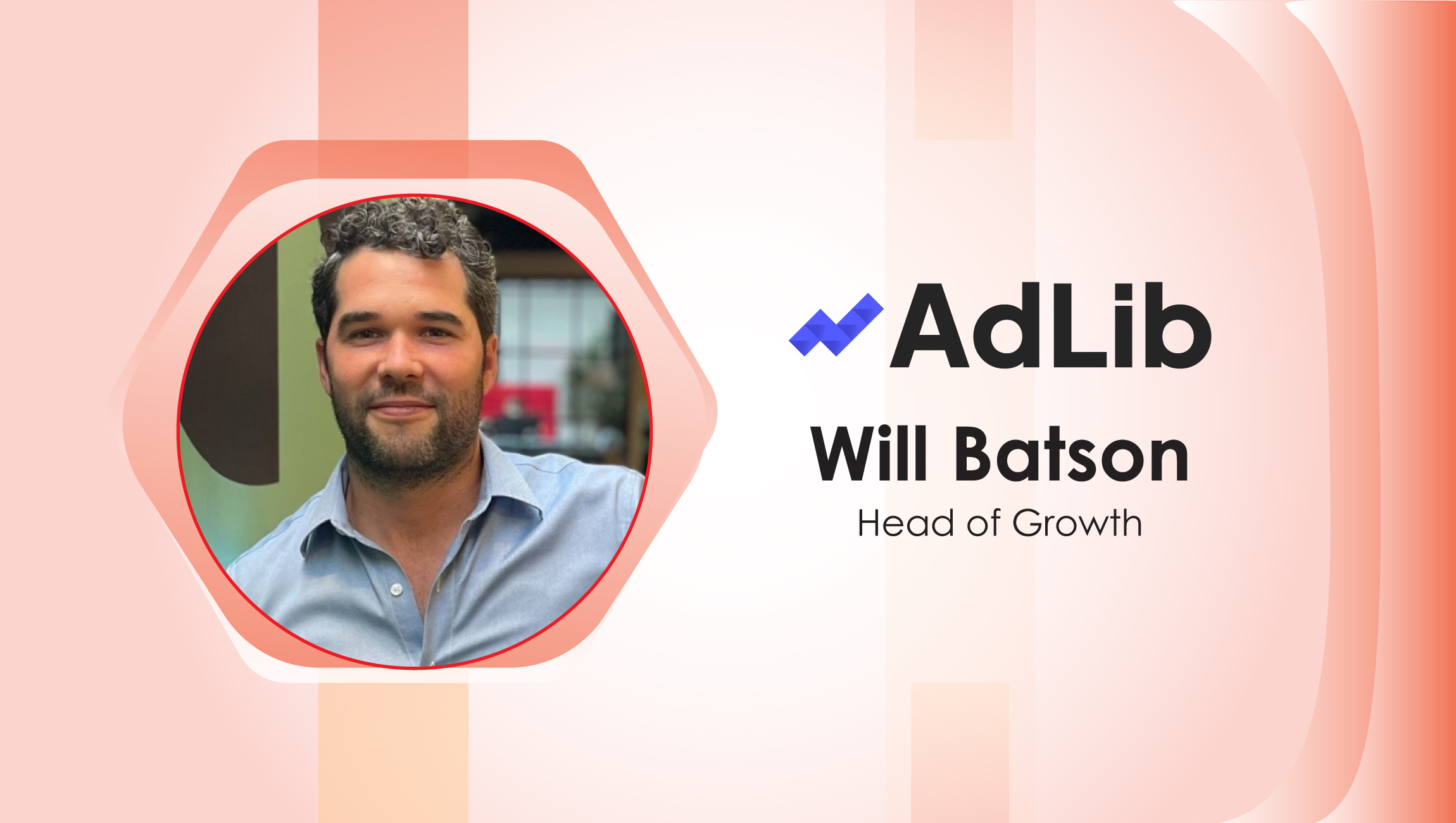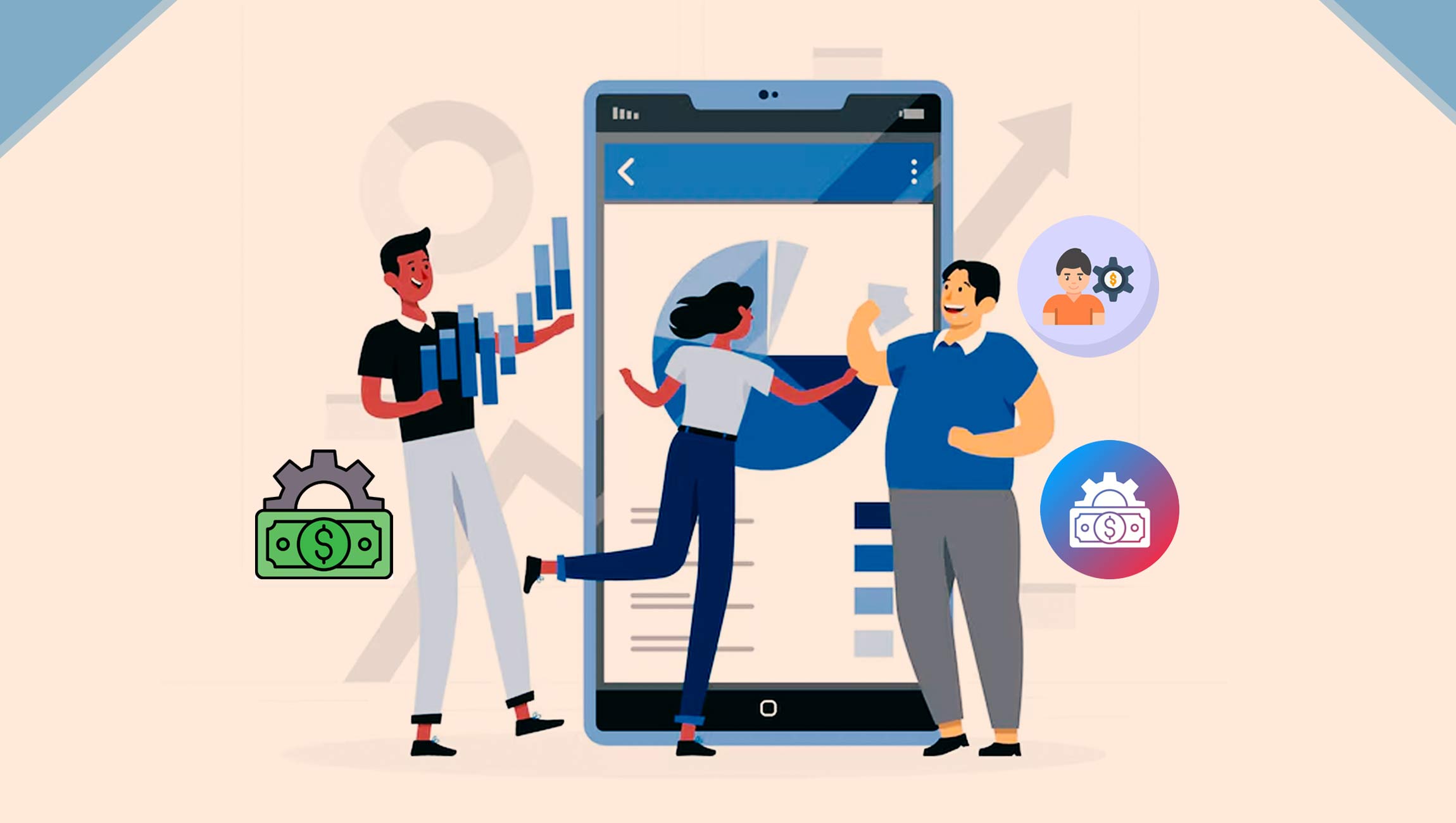Will Batson, Head of Growth at AdLib Media Group busts some common myths on programmatic advertising and AI’s impact on adtech in this Interview:
________
Hi Will, take us through your adtech and martech journey so far?
I’ve spent my career navigating the evolving landscape of adtech and martech, focusing on how technology can make media buying easier, more efficient, and effective. As cofounder and CRO of Hudson MX, I helped build a modern platform for agencies and brand’s in-house activation teams to manage their media investments. Before that, I worked closely with brands and agencies to bridge the gap between legacy systems and the new wave of programmatic and automated solutions. Now, at AdLib, I’m excited to continue that mission by helping advertisers and agencies access premium programmatic media without the complexity and inefficiencies that still plague the industry.
Why in your view do agencies and marketers still struggle with DSPs?
DSPs have proven to be powerful tools for the largest brands—especially those working with holding companies that can afford dedicated in-house teams to manage multiple DSPs, direct SSP relationships, and custom data integrations. However, for mid-market agencies and independent advertisers, navigating the fragmented and often rigid programmatic ecosystem can be challenging.
Some key factors include:
- Limited Reach & Platform Constraints – Many advertisers are forced to choose a DSP based on budget rather than the best fit, which can restrict access to premium inventory.
- Data & Audience Fragmentation – Without consolidated audience insights and standardized reporting, campaign performance is harder to optimize.
- Lack of Standardization in Metrics – Different DSPs report and measure success in inconsistent ways, making it difficult to compare performance across platforms.
This is where we come in—to remove barriers and provide a more accessible, transparent programmatic experience, helping advertisers access premium inventory and optimize campaigns without the need for an extensive in-house adtech stack.
Marketing Technology News: MarTech Interview with Sarah Speigle, Director of Product @ InMoment
What myths about today’s state of programmatic ads and adtech would you like to bust in this Q&A?
- “More inventory means better results.” – Yes, but quality matters. Access to more inventory is valuable, but only if advertisers can filter and prioritize high intent, premium placements. Without proper curation, excess inventory can lead to inefficiencies and wasted spend.
- “Programmatic is just a black box.” – It doesn’t have to be. Transparency is improving, and platforms like AdLib are giving advertisers clear visibility into where their spend is going, ensuring they get the most out of their campaigns. And, the more DSP partners you have competing over your dollars, the more efficient the marketplace.
- “AI can completely replace human media buyers.” – AI is a powerful optimization tool, but it still needs human oversight for strategic decision-making, creative adjustments, and ensuring brand safety. AI enhances programmatic it doesn’t replace expertise.
By focusing on quality at scale, transparency, and smart automation, advertisers can maximize the potential of programmatic without the common pitfalls.
Can you share a few thoughts on the varied impact of AI across modern digital advertising and marketing?
AI is redefining programmatic advertising, but it’s not a one-size-fits-all solution. Some of the biggest areas of impact include:
- Predictive Bidding & Optimization – AI can analyze millions of data points in real-time to optimize bids, placements, and performance
- Creative Personalization – AI is making it easier to generate dynamic creative that adapts to different audiences and formats
- Fraud Prevention – Advanced AI models can detect bot traffic, MFA sites, and suspicious activity far better than manual methods
- Media Planning & Audience Insights – AI is helping agencies forecast trends and target audiences more effectively
That said, AI is only as good as the data it’s trained on. Marketers need to ensure they’re working with clean, high quality data to get the most out of AI driven campaigns.
Some best practices that marketers and advertisers should keep in mind for 2025?
Adopt a Multi-Channel Approach, don’t rely on a single platform. Combine CTV, programmatic display, audio, and social for stronger results.
Stay Agile with AI & Automation, use AI powered tools for campaign optimization, but keep a human in the loop approach for strategy and brand safety.
Think Beyond CPMs, ocus on engagement, conversions, and long-term ROI, not just the cheapest impressions.
Marketing Technology News: Strategies and Tools for Improving Email Deliverability

AdLib is a proven leader in DSP-agnostic programmatic advertising, offering an automated, and scalable solution for marketers worldwide. With its robust infrastructure, easy to use interface, and innovative approach, it addresses key industry challenges while aligning seamlessly with advertisers’ strategic goals.
AdLib makes it easy to rapidly launch programmatic campaigns and revenue streams, minimize the resources required to scale, and stay positioned at the forefront of the digital advertising industry’s transformation.
Will Batson is Head of Growth at AdLib Media Group











